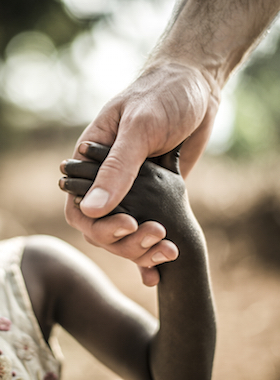Intercountry Assessment or Home Study
What is an Intercountry Adoption Assessment or Home Study?
An assessment is an opportunity to discuss adoption and what it means to you. It is designed to help you learn and think about what you have to offer a child in need of an adoptive home. It facilitates you to identify your own strengths and skills which will help you to care for an adopted child. In intercountry adoption some children may have a history of pre- birth, genetic, medical, physical or developmental issues which may be of concern and you will have to decide if you could parent a child under these circumstances. It is important that you feel you have the confidence to parent a child who has experienced the loss of their birth parents, who will grow up in Ireland and not in their own culture. The age of the child you wish to adopt is also important and will depend on the country of your choice. If you want to be considered for an older child you would need to have experience of working with or caring for older children or be prepared to gain appropriate parenting skills through education, research and workshops. You will have the opportunity to consider this further during the preparation course and assessment.
You will also need to make a decision about the country where you plan to adopt and consider the profiles of children who are available. This will be discussed with you as part of your assessment.
Interviews
 Interviews are conducted in your home and/or at our offices. If you already are a parent we will also want to meet with your children where this is appropriate. Your social worker will decide suitable times and dates with you. This may require that you take some time off work. A letter can be written to your employer giving details of the interviews you are required to attend so that you do not have to take these days as annual leave. Generally we meet you for 6-8 interviews to complete the assessment, although this can vary depending on your individual circumstances.
Interviews are conducted in your home and/or at our offices. If you already are a parent we will also want to meet with your children where this is appropriate. Your social worker will decide suitable times and dates with you. This may require that you take some time off work. A letter can be written to your employer giving details of the interviews you are required to attend so that you do not have to take these days as annual leave. Generally we meet you for 6-8 interviews to complete the assessment, although this can vary depending on your individual circumstances.
As with domestic adoption, interviews will cover a number of topics which will impact on your suitability to become an adopted parent. For example we will explore your own childhood experiences and how these have influenced you. As many of our early experiences affect how we respond to situations as adults we will reflect on these with you and how they may impact on your parenting and the additional demands of an adopted child. We will also discuss with you and your partner how you relate to one another and how you resolve difficulties when they arise. If you are a sole applicant we will explore your significant relationships and the support networks in your life. The interviews will also look at why you have decided that adoption is right for you at this time.
Other important areas that will be explored with you will include the complex range of issues associated with inter-country adoption, such as identity development and the importance of the family of origin. Adopted children have a need to know about their birth family and should be encouraged to ask questions and helped to understand difficult issues. As there are still very few countries where there is the possibility of ongoing contact with birth families, it will be important that you consider how you can support the child to continue to feel a connection to their original family.
Children will have lived in either in foster homes or orphanages, some for several years, and will have experienced a number of different moves before they are adopted. You will be asked how you think these experiences will have influenced the child and to outline some practical steps you could take when caring for a child who has experienced a number of carers in their lives. Adopted children may have difficulties forming relationships and attachments. You will be asked to think about how you might help a child who has gone through these early experiences to feel safe in your home and to have confidence in you as their parent.
The assessment will explore your attitudes and understanding of issues such as substance abuse during pregnancy and the impact of mental health issues both during and after birth on the child. You will need to consider the resources and supports that are available and how they can be accessed. Some of these services are only available privately and you will have to be able to finance them if they are needed.
Children adopted from abroad will have a wide range of backgrounds and health needs. These needs range from short term health issues which may require medical intervention and cause no further concerns, to long term conditions such as mild to moderate intellectual or physical disabilities. A child with an intellectual or physical disability will often need long term medical services and also emotional support. There is the possibility that there will be long term effects on the child if there has been substance abuse during pregnancy such as alcohol or if the birth parents have had serious mental health issues. We will ask you to research these so that you can decide which children you would be in the best position to parent. There are two mediation agencies which have information on their websites which you may find helpful. www.helpinghands.ie www.arcadoption.net. Pact also has a small library of books and resources which we encourage you to access.
What happens Next?
When your assessment has been completed your social worker will write a report. This is discussed with the Principal Social worker of Pact before a recommendation is made about your eligibility and suitability.
 Your report is then forwarded to a Adoption Committee (AC) of Tusla Child and Family Agency which considers it and also makes a recommendation.
Your report is then forwarded to a Adoption Committee (AC) of Tusla Child and Family Agency which considers it and also makes a recommendation.
An application form, along with your assessment report and supporting documentation are then submitted to the Adoption Authority of Ireland (AAI).
Your documentation is reviewed by the administration team and your assessment by the Social work team at the AAI and, if satisfactory, a Declaration of Eligibility and Suitability to Adopt is granted.


